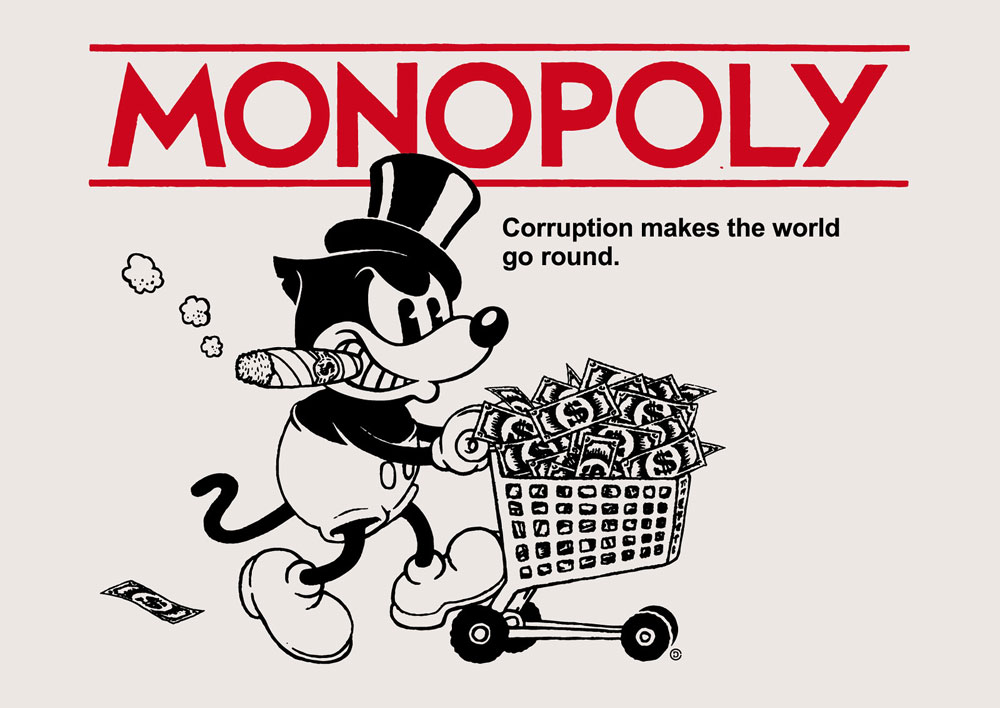
January 22, 2020; MarketWatch (Associated Press)
District of Columbia attorney general Karl Racine recently filed a lawsuit against President Donald Trump’s inaugural committee. The lawsuit claims the committee misused nonprofit funds raised to celebrate Trump’s inauguration by spending more than $1 million over four days at the Trump International Hotel. This recent case is just one more example in a broader pattern of corruption in which Trump has flouted the laws governing nonprofit organizations and exploited his public office to enrich his companies.
The Associated Press reports that a number of individuals involved with the planning of the event raised concerns about the optics of paying such a high rate to reserve the space at the hotel. An email by a former adviser to the first lady warned that the $1.03 million was “at least twice the market rate.” Racine alleges the committee coordinated directly with hotel management and Ivanka Trump to generate revenue for the Trump Hotel, and “district law requires nonprofits to use their funds for their stated public purpose, not to benefit private individuals or companies.”
New documents released as a part of the lawsuit reveal a number of troubling developments. One important revelation is that “there was a real lack of separation between the Trumps as business owners and the Trumps as the incoming first family.” Part of the problem is Trump’s decision to shift business responsibilities to his family members rather than completely disconnecting from his companies during his presidency. In an email exchange reported by Mother Jones, communications between hotel management and the committee highlight that negotiations “happened specifically in the context of profits for the hotel.”
A Public Citizen press release shows that rather than draining the swamp of corporate and political interests, the Trump inaugural committee comprised a shady mix of individuals who represent the very interests he claimed he would purge if elected. The committee included representatives from some of the most influential and wealthy corporations from the financial and real estate sectors, including casino magnate Sheldon Adelson and Diane Hendricks, who is well known for her ties to the Koch empire.
The Associated Press notes that other state and local jurisdictions are also investigating the committee for a variety of abuses, including “whether foreigners illegally contributed” to Trump’s inauguration. In 2018, the Wall Street Journal reported that the investigations were also looking into whether the committee members provided donations in exchange for political favors and access to the administration.
Sign up for our free newsletters
Subscribe to NPQ's newsletters to have our top stories delivered directly to your inbox.
By signing up, you agree to our privacy policy and terms of use, and to receive messages from NPQ and our partners.
It is clear that the corporate interests represented on the inauguration committee have benefitted immensely from Trump’s policies. Newsweek outlines how the richest five percent of Americans received over half of the benefits from the Tax Cuts and Jobs Act. It also notes that the federal government saw its “largest year-over-year drop in corporate tax revenue outside of a recession,” increasing the federal deficit by $113 billion from 2017 to 2018.
This is certainly not the first instance of Trump abusing the rules and regulations of the nonprofit sector for his personal gain. The Donald J. Trump Foundation paid $2 million to eight nonprofit organizations in New York after striking a settlement deal with the New York attorney general. The lawsuit found the Trumps were “using the foundation as an extension of their businesses and the campaign.”
The New York Times notes Trump made a number of detailed admissions as a part of the agreement. Some of the more egregious examples include the Trump foundation’s purchase of a $10,000 portrait of himself to put on display at his Florida hotel. The foundation also used its funds to pay off the obligations of his for-profit companies. In one of the more troubling admissions, Trump acknowledged that his campaign was given control over nearly $3 million that was raised at a veterans’ fundraising event in Iowa in 2016. The lawsuit ultimately found “unlawful coordination with the Trump presidential campaign, repeated and willful self-dealing, and much more.”
Trump’s exploitation of the nonprofit sector to advance his own personal gain and political aspirations is concerning for numerous reasons. It raises a number of issues about the public perception of the sector. It also raises serious questions about the regulation of the sector, and how the Trump foundation was able to get away with such flagrantly abusive spending without attracting attention. It also very much supports the notion expounded in Anand Giridharadas’ book, Winners Take All, that a small number of philanthropists use their giving as a cover for the harms they are causing society in the building of their fortunes.
As Bryan Stevenson of the Equal Justice Initiative notes in his provocative TED talk, “We have a system of justice in this country that treats you much better if you’re rich and guilty than if you’re poor and innocent. Wealth, not culpability, shapes outcomes.” It is our job in the sector to challenge this behavior, even when it comes from the Oval Office.—Benjamin Martinez











